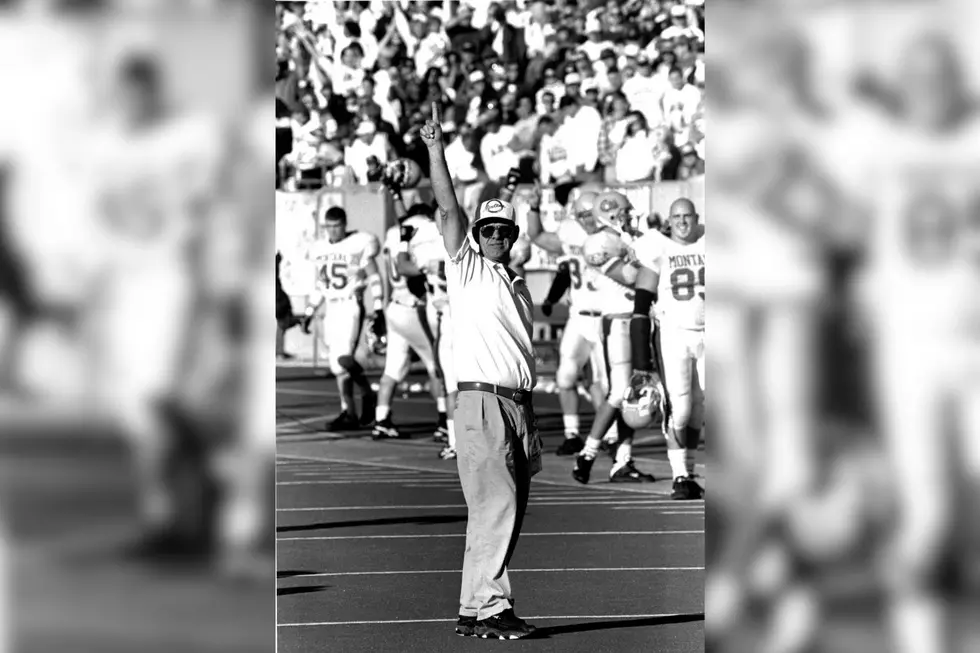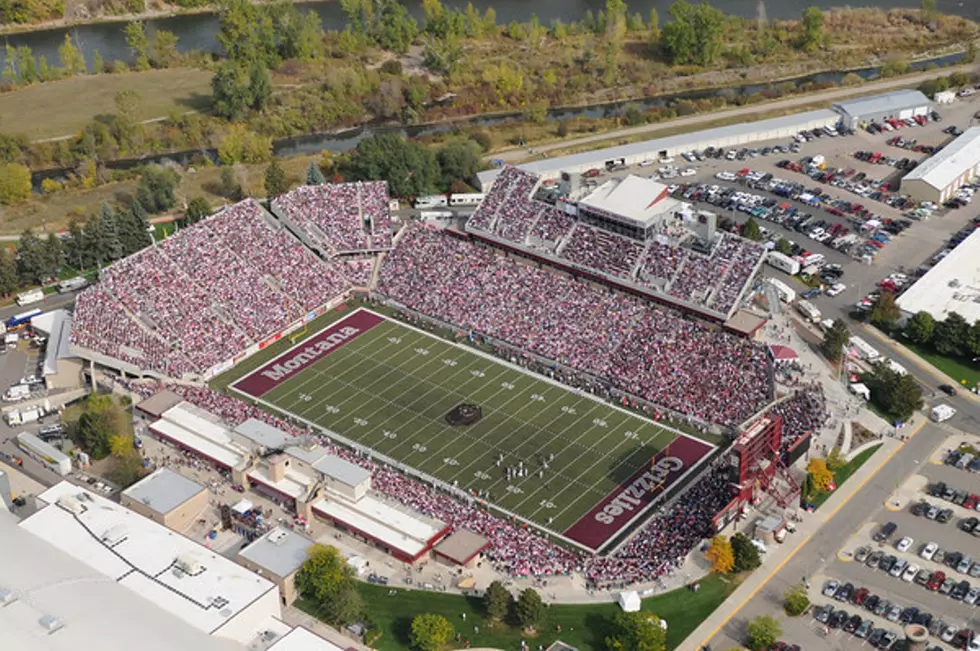
NCAA Report – Montana Failed to Monitor Football Program – Three Years Probation
On Friday, July 26, the NCAA released its long-awaited report regarding the University of Montana football program. The report states that the university, and its former head coach, failed to monitor the football program.
The report states that: 'University boosters provided extra benefits to football players, including meals, free legal representation and bail bond payments, a small loan, clothing, lodging, transportation and laundry services. Additionally, the football team exceeded coaching limits and two former student-athletes competed while ineligible. As a result of this activity, the university and the former head coach failed to monitor.'
The report goes on to state that: ‘Penalties in this case, many of which were self-imposed, include a three-year probation period, scholarship reductions, a vacation of wins in which the ineligible student-athletes participated and reduction in the number of undergraduate student assistant positions. The former head coach, among other consequences, will be suspended from coaching duties at his current university for the first game of the 2013 season and face multiple recruiting restrictions during the upcoming fall season.’
University of Montana Athletic Director Kent Haslam said on Friday that to have the report finally released is a relief for everyone involved, players, coaches and the public. The report concludes an 18-month investigation.
"It really boils down to extra benefits for student athletes," Haslam said. "That's what the report really focuses on."
According to the report: ‘When two student-athletes were arrested in 2011, a university booster provided bail. Another booster then provided the student-athletes with free legal representation. According to NCAA rules, a law firm may provide a student-athlete free legal assistance if it has a history of providing pro bono services to other individuals, including the general student body at the school, and the student-athlete initiated contact with the law firm. Additionally, two student-athletes competed in regular and postseason games while they were ineligible, due to the provision of bail and free legal assistance.
Following the release of the two student-athletes from jail, the former head coach learned that a booster provided bail for the two student-athletes. The former head coach did not inform the compliance office or any other administrator of the booster activity. Senior athletics department officials, including the compliance director and director of athletics, were also aware that the booster was providing legal assistance to the student-athletes.
Three married couples, who were university boosters, provided meals for at least eight student-athletes on more than 100 occasions from 2004 through 2012. Additionally, one of the couples provided a student-athlete with free storage space for two months, transportation, apparel and a small cash loan. An assistant director of athletics also committed a secondary violation by providing a student-athlete with meals, snacks, lodging and laundry services.’
The head coach at the time, Robin Pflugrad, is now the offensive coordinator at Weber State. In addition to being suspended from coaching the first game of the 2013 season and facing restrictions in recruiting, Pflugrad must also attend a 2014 NCAA Regional Rules Seminar.
Haslam said the Grizzly football program will have to vacate several wins in which the two ineligible players took part.
"Any games after October 23, which would take in Weber State, Western Oregon and Montana State in the regular season, and in the playoffs that year, wins against Central Arkansas and Northern Iowa," said Haslam in regard to the games during which the violations took place.
The Grizzlies went on to lose in the semi-final round against Sam Houston State.
Since the University of Montana offered self-imposed penalties, Haslam believes the NCAA did not come down as hard on the school as they could have. One penalty that was not imposed was a prohibition in playing any post-season games through the three year probation period.
"We took this investigation very seriously, and we did things that will really have an impact and help us get better," Haslam said. "I'm very pleased that a post-season ban is not on the table."
Two words that do not appear in the report are 'sexual assault.' Haslam said the investigations by the Department of Justice and the NCAA were parallel in time, but not in subject matter.
"That's one of the aspects of the report that makes me feel the best," Haslam said. "All along, these investigations were running on parallel tracks, but they were not related. I know it's easy for the public to jump to that conclusion because they all came at the same time. It's nice now that people and the media can read this report and know just what was being investigated, and it had nothing to do with sexual assault."
In addition to the three year probation, Montana will lose four scholarships, and will now have 59 instead of 63.
Haslam said universities all over the country face extra scrutiny by the NCAA, and must learn from each other how to best comply.
"All of us universities are in this together," he said. "We always learn from others and how they've handled things, and we're all following the same rules. I would hope the approach that we took, and the [proactive steps] that we've taken here over the last several months would be a model for others on how to deal with very complicated issues."
University of Montana Athletic Director Kent Haslam
Response by University of Montana President Royce Engstrom
July 26, 2013
Dear Colleagues and Friends,
Today the NCAA announced the conclusion of its investigation, begun in January 2012, into the University of Montana’s athletics department. The Division I Committee on Infractions handled this matter through summary disposition, which is the NCAA’s cooperative and streamlined process.
The NCAA determined that we failed to monitor our football program, finding instances of playing ineligible student-athletes, provision of extra benefits to some football players, and exceeding coaching limits on a limited basis. Penalties imposed include vacating certain game wins from the 2011 football season, a limit on football scholarships for three years, and probationary status for three years.
As President, I take seriously the responsibility of ensuring that UM offers a dynamic learning environment that is second to none, including strong academics and strong athletics. Even before the end of the NCAA investigation, we instituted changes. We expanded our athletics compliance office; we are developing more educational programs; we are improving our communications with staff, coaches, student-athletes, fans, and supporters; and we are improving facilities for these students. We will work to ensure that we are in full compliance, and we intend to continue strengthening our culture of compliance.
Under the leadership of Director of Athletics Kent Haslam, we have pledged to build a superior and effective athletic program with students who are known for their contributions to their sport, to the classroom, and to the community. We are proud of our student-athletes, and I consider athletics integral to the fabric of the Montana experience.
The resolution of the NCAA investigation is welcome, and it reinforces our focus on excellence at UM. I can assure you that our athletic program has never been stronger. Indeed, in addition to their successes on the field and the court, our student-athletes just posted their 16th semester of having a GPA of 3.0 or higher – which is better than our overall student population. Not only that, they also devoted more than 700 hours to community service just last year alone.
The conclusion of the NCAA investigative process – following last May’s announcement of our agreements with the U.S. Department of Justice on unrelated matters – marks an end to this chapter in UM’s history. Many faculty members, staff members, and students have worked hard this past year and a half on new processes and policies across campus, on new training, and on new communication tools. Our campus is stronger, safer, and more vibrant than ever.
Sincerely,
Royce C. Engstrom
President
More From Newstalk KGVO 1290 AM & 98.3 FM









